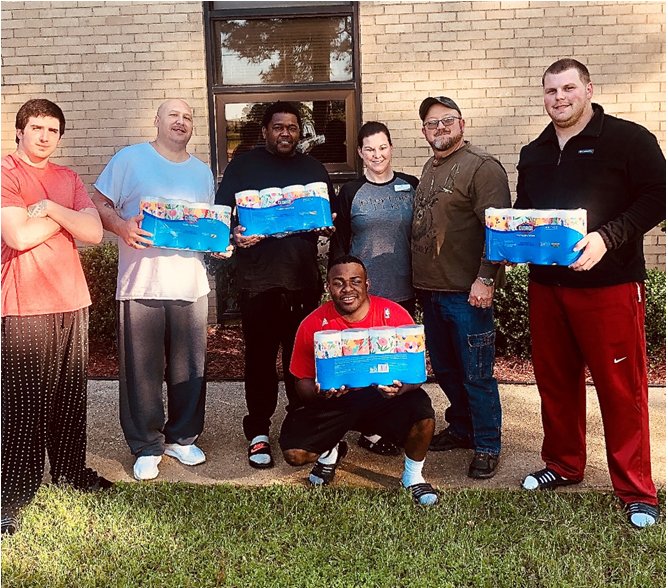Everyone is surrounded by people throughout their life, and LifeTouch Hospice believes those nearing the end should be surrounded by their loved ones.
That thought hasn’t changed amid the COVID-19 pandemic that’s claimed over 47,000 lives around the nation, including 45 in Arkansas as of April 23, although there are a few more restrictions.
LifeTouch Hospice director Jennifer McLelland, RN, CHPN, said the in-patient hospice house has had to limit visitors and asked family members or patients to make a short list of who they want to be able to visit.
“They need to be around their close friends and family,” she said.
Those on the list are still screened before they make their way to the patient’s room. McLelland said temperatures are taken and people are asked if they have symptoms, have been in contact with anyone with the virus or symptoms, or if they’ve traveled out of the country.
She said staff members are also educating families on personal hygiene and guidelines put in place by the CDC and Arkansas Department of Health.
“We can’t tell them what to do in their own home and we want them to have visitors at the end of life, but we also want them to be very careful about who they’re allowing to come in to visit,” McLelland said.
Many families have lost access to their loved ones as they die from the virus. The New York Times reported in late March that hospitals across the nation and dozens of countries are barring visitors out of fear of contagion.
McLelland said because of this, families who are able to to be with their loved ones at the end of their lives are thankful.
“They know all over the country, not so much in our area, but even in mid-Arkansas, that people are not able to be there and hold their hand; be there when they take that very last breath,” she said.
However, her concern isn’t getting a COVID-19 patient now so much as the possibility of receiving one in the future.
McLelland said LifeTouch Hospice isn’t accepting active COVID-19 patients in the in-patient unit as it’s dangerous for other patients, families and staff members. However, they would accept patients in a home care setting.
She said if someone who has had the virus and tests negative twice and didn’t have symptoms, they would accept them in the in-patient unit.
“We want to be able to take care of what we need to, but we also have to consider other patients, other family members, our staff,” McLelland said. “If one of our staff members gets sick, how is that going to affect the other staff members around them?”
She noted home care staff members no longer come into the office and many meetings are done remotely, and contact between staff members has already been limited.
A similar cautionary step was taken at the Interfaith Clinic as well.
Richard Reeves, vice president of community health for the SHARE Foundation, said the clinic’s executive director Jill Temple quickly implemented protocols to protect patients and staff.
“Interfaith Clinic does play a vital role in providing critical health care services to underserved populations in our community,” he said. “We are continuing to do that through this, things have just changed a little bit.”
Patients are asked to call ahead before going to the clinic, and staff are urged to put on appropriate PPE and meet patients to assess their symptoms. Visits that can be pushed back are, and there are less face-to-face visits.
Reeves said telephone visits, different from telemedicine since it’s not a video call, have been a big help. He said staff members are working to assess patients’ needs over the phone and call in prescriptions, when necessary.
Staff are also educating patients during the crisis through social media and over the phone.
“We’re open for business, we’re taking care of as many patients as we can,” Reeves said. “It’s a different world right now. There’s just a little amped up precautions to protect our staff and patients.”
Both the Interfaith Clinic and LifeTouch Hospice have received donations from the community for PPE and other materials during the pandemic.
